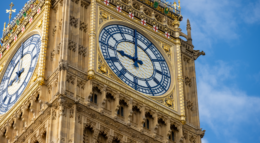
The truth about the UK’s debt
The UK's rising national debt can no longer just be ignored. History has shown the dangers of unmanageable state debts, and without Government policy shifts now, the future does not look bright for Britain, argues Robert Hyde
This week has seen the publication of two official reports into the country's finances, and it's now clear that this will not be a V-shaped recovery. The bleak picture painted by these reports shows that the economy is going to take far longer to recover from the Government imposed lockdown (and it is lockdown, not just Covid-19, which has caused this economic catastrophe) than expected. Having grown only 1.8% in May, according to the Office for National Statistics, the UK's GDP is now 20% lower than it was at the start of February, and the lowest it has been since the early 2000's.
With unemployment forecast to surge to 13% as the furlough scheme is wound up, and Government borrowing already set to be the highest peacetime deficit recorded in the last 300 years (close to £350 billion, or roughly 18% of GDP) so far it would be fair to say that the Government's interventionist policies have not had the desired impact.
While the current crisis has been likened to a wartime event, and has even resulted in a limiting of individual liberty, the Covid-19 crisis is nothing of the sort. So while many commentators have argued the Government should accrue debt as they would during a time of military crisis, taxpayers need to be far more wary of reductionist so called easy answers like this. Taking on vast quantities of debt, or allowing quantitative easing (practically printing more money) to go into overdrive, is going to have significant long term implications.
To even manage a debt of the level we are amassing, requires a combination of favourable conditions, not all of which are within our Government's control. Fundamentally, interest rates need to be low, as even a small increase will dramatically change the cost of servicing the debt (the interest paid). If interest rates were to rise to even 1% from where they are now, the Government would end up spending more on debt interest payments annually, than it does on defence. As any economist will tell you, historically low interest rates will not last forever.
While it has been touted by those who claim the current level of debt is nothing to be alarmed about, that in 1945 the UK's debt stood at 240% of GDP (in contrast to what they call the almost modest 100% of GBP today) it should be remembered that it took until the 1990's for UK debt levels to fall below 50% of GDP, and that this was only possible as between 1945 and 1980 the pound lost 90% of its value, and the UK saw interest rates as high as 27%, an almost unthinkable prospect today. Post war, the UK even had a young population, which resulted in relatively little needing to be spent on pensions and healthcare, in total contrast to today. In reality, the methods of dealing with high levels of debt within the UK's past, will not work to solve the current debt crisis.
Given the UK has yet to even recover from the debt caused by the financial crash of 2007/08 (a 'once in a century event', according to economists at the time) the Government needs to look towards radical approaches to stimulating the economy to deal with the current debt crisis.
While the Government have moved towards utilising Keynesian state intervention, a more tried and tested conservative approach would be to follow a path of mass economic deregulation that would foster faster economic growth, coupled with lower government spending. On current trends, without a radical Government policy shift, the Office for Budget Responsibility forecasts debt rising to 275% of GPD in the next 50 years. This is not just a result of 'wartime' spending, this is a result of annual structural deficits, and the Government living beyond its means.
The UK now needs to see high levels of economic growth, or it risks high levels of inflation and the devaluation of the pound in the long run to handle the debt, which brings its own set of negative consequences.
In practice, radical changes to Government policy, to deregulate the economy may not be an easy answer, and may even result in unintended consequences. But, the UK's rising debt can no longer just be ignored. History has shown the dangers of unmanageable state debts, and without Government policy shifts now, the future does not look bright for Britain.













